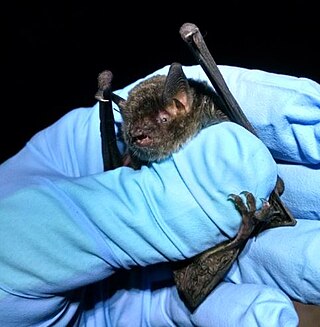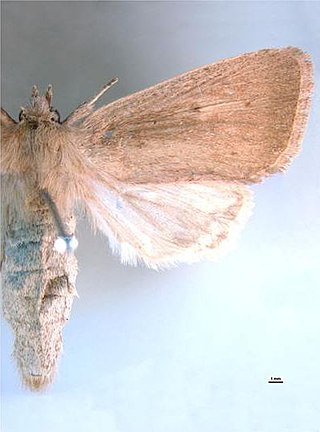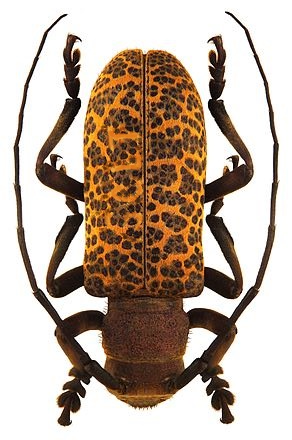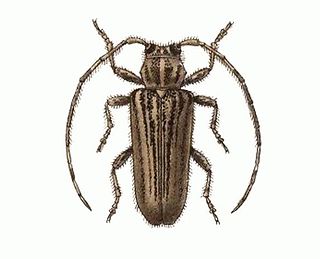
The gray bat is a species of microbat endemic to North America. It once flourished in caves all over the southeastern United States, but due to human disturbance, gray bat populations declined severely during the early and mid portion of the 20th century. 95% of gray bats now hibernate in only 15 caves. M. grisescens has been listed as federally endangered by the U.S. Fish and Wildlife Service since 1976, and is protected under the Endangered Species Act. Gray bat populations were estimated at approximately 2 million bats around the time they were placed on the Endangered Species list. By the early 1980s populations of gray bats dropped to 1.6 million. With conservation efforts in place, in 2004, gray bat populations were estimated to have reached 3.4 million.

Epipsilia grisescens is a moth of the family Noctuidae. It is found in Fennoscandia, Denmark as well as the Pyrenees, Alps, Apennines, Balkans and Carpathians. In the Alps it is found up to 2,000 meters.

Sesamia grisescens, the pink sugarcane borer, pink stalk borer, shoot borer, sugarcane borer or ramu shoot borer, is a moth of the family Noctuidae. The species was first described by Warren in 1911. It is found in Papua New Guinea, Seram, the Moluccas and New Britain.

Estola is a genus of longhorn beetles of the subfamily Lamiinae, containing the following species:
Estola annulipes is a species of beetle in the family Cerambycidae. It was described by Stephan von Breuning in 1940. It is known from Brazil.
Estola assimilis is a species of beetle in the family Cerambycidae. It was described by Stephan von Breuning in 1940. It is known from Brazil.
Estola benjamini is a species of beetle in the family Cerambycidae. It was described by Stephan von Breuning in 1940. It is known from Colombia.
Estola brunnescens is a species of beetle in the family Cerambycidae. It was described by Stephan von Breuning in 1940. It is known from Colombia and Venezuela.
Estola flavostictica is a species of beetle in the family Cerambycidae. It was described by Stephan von Breuning in 1940. It is known from Brazil.
Estola nigropunctata is a species of beetle in the family Cerambycidae. It was described by Stephan von Breuning in 1940. It is known from Brazil.
Estola nodicollis is a species of beetle in the family Cerambycidae. It was described by Stephan von Breuning in 1940. It is known from Brazil.
Estola obliquelineata is a species of beetle in the family Cerambycidae. It was described by Stephan von Breuning in 1940. It is known from Brazil.
Estola rufa is a species of beetle in the family Cerambycidae. It was described by Stephan von Breuning in 1940. It is known from Brazil.
Estola freyi is a species of beetle in the family Cerambycidae. It was described by Stephan von Breuning in 1955. It is known from Trinidad.
Estola basinotata is a species of beetle in the family Cerambycidae. It was described by Henry Walter Bates in 1866. It is known from Brazil, French Guiana, and Ecuador.

Estola vittulata is a species of beetle in the family Cerambycidae. It was described by Henry Walter Bates in 1874. It is known from Panama, Mexico and Venezuela.
Estola cerdai is a species of beetle in the family Cerambycidae. It was described by Martins and Galileo in 2009. It is known from French Guiana.
Estola acrensis is a species of beetle in the family Cerambycidae. It was described by Galileo and Martins in 2009. It is known from Brazil.
Estola insularis is a species of beetle in the family Cerambycidae. It was described by Blair in 1933.
Estola kuscheli is a species of beetle in the family Cerambycidae. It was described by Juan Barriga, Tomás Moore, and Danilo Cepeda in 2005. It is known from Chile.




